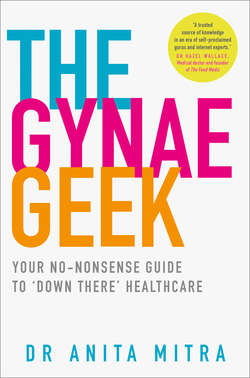Читать книгу The Gynae Geek: Your no-nonsense guide to ‘down there’ healthcare - - Страница 11
Оглавление
Periods are one of society’s biggest taboos. Over half of the population has had or will have one at some point during their lifetime. Yet we barely talk about them.
I’ve noticed an interesting three-way split in the way women feel about periods. In the first group are women who are ambivalent; they don’t mind either way whether they come or not. The second group hate them and would do anything to make them go away (‘Give me anything you’ve got to make them stop!’). The third group love them and are horrified at the thought of not having their period every month – some, because they see it as a sign that their bodies are working, and many because they feel like it’s ‘cleaning their body from the inside’ (although I’m always quite keen to point out that having a period doesn’t clean your body of germs or toxins; in fact, I think period blood often has a ‘dirty’ connotation, which is probably one of the reasons we’re so reluctant to address the issue).
There are some types of contraception – for example, the hormonal coil – that will stop your periods (see Chapter 7), and if that happens it’s not a bad thing. It doesn’t mean your uterus will become ‘unclean’. The medication is simply preventing the lining from building up, so there’s nothing to shed. I once offered the hormonal coil to a lady whose periods were so heavy that she’d had several blood transfusions. However, for her the possibility of having no period at all was unacceptable and she declined, explaining that she ‘wouldn’t feel like a woman any more’. I really like the fact that some women appreciate their period as a sign that their body is working. This is so true, and I always tell my patients that their period is a reflection of what’s been going on in their bodies for the last month, even slightly longer.
The next three chapters will cover the basics of periods, the menstrual cycle and what can, and commonly does go wrong.
